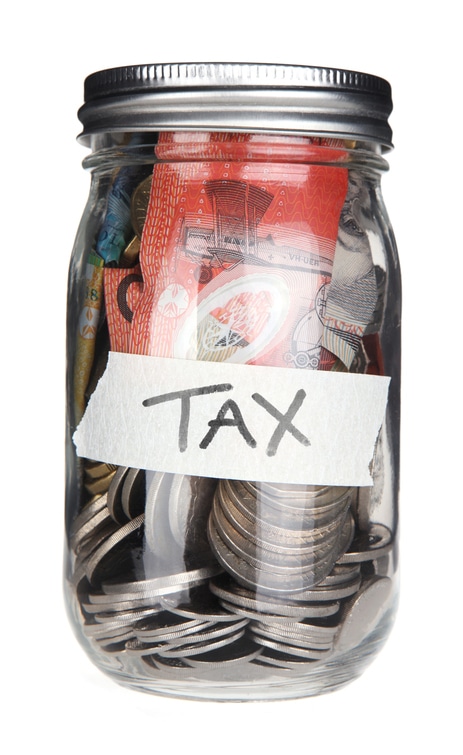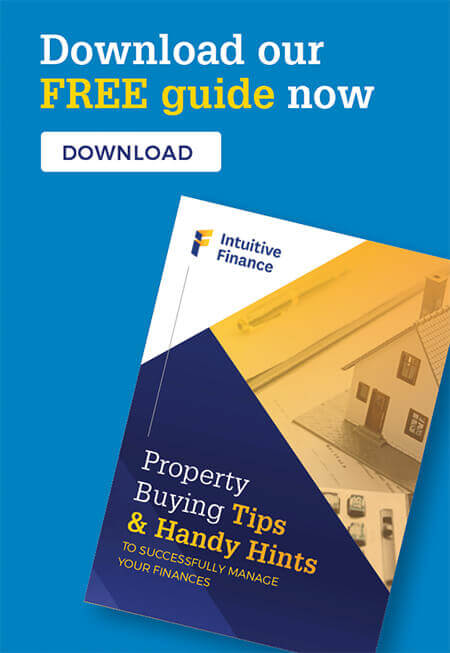 It’s a rite of passage for Australians to head overseas to experience everything that the big wide world has to offer.
It’s a rite of passage for Australians to head overseas to experience everything that the big wide world has to offer.
This is even more so today with international borders usually open to qualified individuals who can add value to the ever-increasing number of global companies.
While many Aussies usually find their way home again at some stage, just as many end up living in a foreign country for much longer than they expected.
This could be because of work opportunities or perhaps they have fallen in love with an exotic co-worker or local and the next thing they know they’re learning Danish and renting an apartment in Copenhagen.
Even if they’re living overseas many want to retain some roots in their home country and even more want to invest in property back in Australia where they understand the market and the economy better. But securing an Australian expat home loan is different to applying for a standard home loan when you’re living back home.
So, to help outline the key differences, we’ve prepared this article so you understand the various ins and outs of non-resident lending.
What types of loans are available to Australian expats?

At Intuitive Finance, we’re specialists in securing property investment lending, including Australian expat home loans.
Many of our clients come to us looking to create a property portfolio while others are looking to buy a home in preparation for their move back to Australia.
But let’s first look at the type of home loans available to Australian expatriates:
- Split loan: Combining the security of a fixed rate home loan and the benefits of a variable loan, the split loan option allows you the freedom to choose how much money you assign to each loan type. Common split loan ratios are 50:50, 70:30 or 60:40 over a two-way fixed and variable rate. The key consideration generally comes down to the amount of risk you want to take on the cash rate going up or down.
- Standard variable rate home loans: Standard variable rate loans are Australia’s most popular type of home loan. The interest rate varies throughout the loan term. These loans generally offer excellent flexibility, low fees and often offer features such as an offset facility, redraw facility, no limits on additional repayments and in most cases, no early pay-out penalties.
- Construction loans: If you are building your own home or investment property, a construction loan may be suitable for you. This loan requires a fixed price building contract from a registered builder. These loans are usually interest-only for the period of building and then become principal and interest once building is completed or, subject to negotiation, this interest only term can be continued. A construction loan allows you to draw money as is required while building.
- Line of credit: A line of credit loan provides you with access to the equity in your home or investment properties up to a pre-approved limit. You access the funds as you need to.The interest rate on a line of credit loan is usually a variable rate and repayments are interest-only.
How much can I borrow with an Australian expat home loan?
 Over recent years, there has much talk in the media about the “issues” with foreign investors so it’s important for expats to understand that they are not lumped into the same basket (well sort of anyway…).
Over recent years, there has much talk in the media about the “issues” with foreign investors so it’s important for expats to understand that they are not lumped into the same basket (well sort of anyway…).
While lenders have tightened the criteria for foreign investors of Australian property, Australian expats are not classed as foreigners when it comes to lending.
Australians are still Australians no matter where they are living.
So, the interest rates and fees for expat home loans are generally the same as those any Australian living here could access, but some lenders may charge higher interest rates.
Specific terms and conditions also apply to these types of loans, so it’s important to compare your options before submitting an application.
A number of factors may impact Australian expat home loans such as:
- Fluctuating exchange rates
- Foreign tax rates
- Any foreign debts or liabilities you have including rent
- The impact of negative gearing (which is NIL as you are classed as a non-resident for taxation purposes whilst earning an income abroad)
- Loan to value ratios (LVRs) ranging from around 60 to 80 per cent are available, but some lenders may require a lower LVR for non-residents. This really does vary from lender to lender
- The assessment of an ex-pats income varies quite dramatically from lender to lender. What few expats understand is that all Australian lenders apply an “Exchange Rate Movement Risk” to their overseas income. This can see their actual income discounted by somewhere between 60-80% and has a dramatic effect on their ability to borrow in Australian terms.
- A little known fact is that irrespective of where they earn their income and what the foreign tax regime is (many work in 0% to 15% tax regimes), that after the above Exchange rate discount, then Australian tax rates are applied.
All of these potential issues make it even more important that you access professional advice from a finance broker who specialises and understands the vagaries of non-resident home and investment loans.
How is foreign income treated?
 While we all live in a more global society these days, each country or region has its own currency, which does fluctuate depending on economic conditions.
While we all live in a more global society these days, each country or region has its own currency, which does fluctuate depending on economic conditions.
For example, during the GFC, the Australian dollar hit parity with the US dollar because of the weakness of that economy compared to Australia’s at the same time.
These days, the Australian dollar is back to more historically averages but it shows that during some periods of time, money can be worth more or less – and lenders take this into account when assessing foreign income for an Australian expat home loan.
Each lender has its own approach to foreign income so this section will outline the general situation for non-residents using foreign income to qualify for a home loan.
The fluctuations in exchange rates mean that lenders will usually only accept a percentage of foreign income when assessing an expat home loan application.
Unlike Australian residents, where 100 per cent of your income is considered for a mortgage application, somewhere between 60 and 80 per cent of foreign income is accepted. This protects lenders from any exchange rate fluctuations.
While Australians are living and working across the globe, foreign income is generally not all treated equally. What that means is that income from more stable economies, such as the US and the UK, are treated more favourably than countries where currencies tend to fluctuate widely such as the Middle East, for example.
Accepted currencies generally include:
- British Pound Sterling
- US Dollar
- Euro
- Singapore Dollar
- New Zealand Dollar
- Canadian Dollar
- Hong Kong Dollar
- Japanese Yen
- Chinese Yuan Renminbi
If you happen to be working in a different country, such as Dubai in the United Arab Emirates, foreign currencies can be accepted but your non-resident home may be subject to lower a LVR such as 60 per cent versus 80 per cent.
What are the tax implications of Australian property investment?
The tax implications of Australian property investment can be quite straight forward because rent that is earned in Australia is classed as income.
The determination of whether you are resident or non-resident for tax purposes is where it can get tricky so make sure you access professional advice regarding this.
The reason why this is important is that there are differing tax rates for Australian residents and non-residents.
Generally speaking, however, you will be treated as a non-resident of Australia for tax purposes depending if you pass any of the following tests:
- Residency test – This test looks at where you live as your settled or usual place of residence.
- Physical Presence Test – if you have physically been in Australia, continuously or intermittently, for more than one half of the Australia income year (from 1 July to 30 June), you will be a tax resident of Australia.
- Domicile Test – This test requires you to determine the country of your domicile (that is your birth).
- Commonwealth employees – if you are a member of the Commonwealth Superannuation scheme, you will be a tax resident of Australia.
As mentioned above, for non-residents who receive a rental income from an Australian property, you will be required to pay tax.
The non resident tax rate is:
- 33% for all income up to $80,000
- 37% for income between $80,001 and $180,000
- 47% for income over $180,000.
 Another important distinction between residents and non-residents is that non-residents are not eligible for the tax-free threshold.
Another important distinction between residents and non-residents is that non-residents are not eligible for the tax-free threshold.
But, whether you are a resident or a non-resident, if your rental property is negatively geared, you can claim a tax loss on any Australian income.
When it comes to negative gearing, the tax loss rules generally operate in the same fashion regardless of your tax residency status.
If you are a non-resident for tax purposes you can carry the loss forward to offset against future income.
A wise strategy for an Australian who is moving overseas to work may be to accumulate tax losses on Australian property, which can then be offset from their income when they return to work in Australia.
This can include any capital gains that are made when the property is sold.
This can be highly beneficial in instances where non-cash tax deductions, including depreciation, are a part of the tax loss.
Intuitive Finance – the smart choice
The world is smaller and more accessible so many Australians are taking advantage of the opportunities to expand their careers by living and working overseas.
But often they always intend to move back home or prefer to invest in property in Australia so they can build wealth in an economy they know and trust.
The world of banking and finance can be a pretty daunting one for both novice and sophisticated investors and since our establishment in 2002 we’ve focused on providing outstanding service and business standards.
So if you’re searching for the best Australian expat home loans, why not contact Intuitive Finance today to ensure you have the right information and expert support on your side no matter what stage of the property ownership journey you are on.
Disclaimer:
The information provided in this article is general in nature and does not constitute personal financial advice. The information has been prepared without taking into account your personal objectives, financial situation or needs. Before acting on any information you should consider the appropriateness of the information with regard to your objectives, financial situation and needs.
- Don’t hold your breath for a rate cut (but we also won’t see any further increases in 2024) - February 1, 2024
- Is Victoria’s housing supply about to get better – or worse? - November 20, 2023
- How to avoid a Christmas financial hangover - November 15, 2023










10 Comments. Leave new
I have a problem and I want to see if there’s any way I can get a loan. I have very little income in Australia (any income I did have went through a trust and the distribution is on the tax free threshold). I don’t have a local accountant personally. But I am majority owner in 3 companies. I have a startup in one country (with country govt investment but it’s now at the end of startup funds) – I was drawing a reasonable salary there. I have a majority stake in my original company that is domiciled yet another country. It has that govt as a shareholder, but only revenue is licensing in the US. It also has a large malpractice case running in New York. But I have no property personally, and a ton on credit cards that I want to refinance – basically I used my credit cards when needed with the startups. However, I spoke to a couple of banks and they said they couldn’t recognize any foreign income and my holding in the overseas companies made no difference to them. This seems absurd. The company doing licensing has some of the world’s leading companies as licensees, but no surplus cash as the license revenues are reinvested in the campaign. Also about to start a licensing campaign here and Europe via Australian subsidiary. So a lot on the asset side, but all foreign, and little local taxable income. Is there any way I can get a loan to consolidate my credit cards?
Hi John,
Based on your scenario, without knowing amounts or figures, it is probably unlikely that an Australian bank would be interested in this type of debt consolidation.
I am planning to get a home loan. Thanks for sharing this article. This is very helpful.The list of type of loans you shared is definitely helpful to me. This will definitely help me to choose or get the right type of loan for me.
Our pleasure Mirriam,
We’d be glad to assist you.
Hello,
I am an Australian, currently lives in Dubai and looking for a property investment back home…
After reading this article I thing I need professional help assessing my situation before I take this step..
How can I get in touch with you guys..?
Hi Antoine,
Thanks for your message. You can either register a contact me on the website or email email us at info@intuitivefinance.com.au and Hanna can send you our requirements to assess your capacity as an Australian expatriate.
We look forward to assisting you.
Hi Andrew,
I live in the US and My husband and I own our own business. What is the likelihood of us obtaining a mortgage to buy a home in Australia? I’ve heard that it’s difficult to get a mortgage if you’re self employed. Thank you kindly Josie
Hi Josie,
Thanks for the contact. Yes, it is a little more difficult at present as a self-employed Expatriate living and working abroard, however if you’d like, we’d be happy to look at your situation further?
You can contact us on info@intuitivefinance.com.au should you wish to do so.
I want to have my own house now since I am going to get married soon. I think that Line of credit will definitely help me. I hope I can get an approval for this loan.
I need a home loan. I am interested to use construction loans.I think that this will surely help me to have my dream home. Thanks for sharing this article.